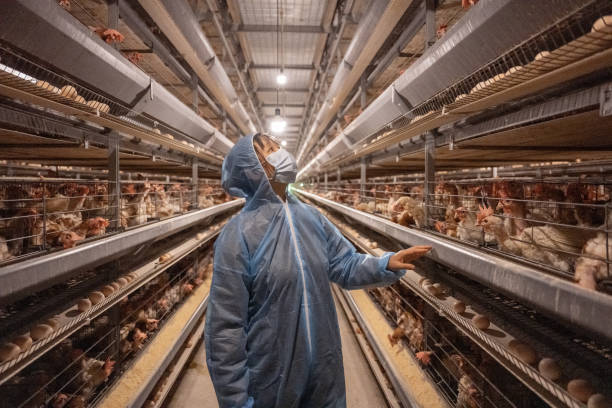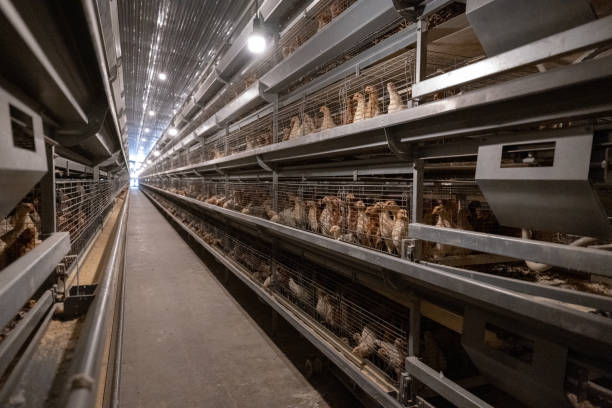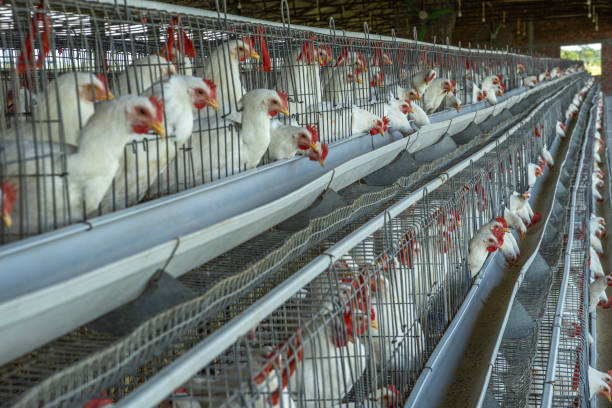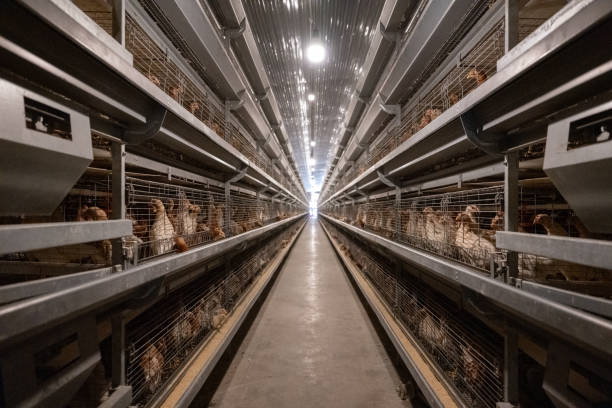
Layer Cage Systems for Sale in Cameroon
Layer Cage Systems for Sale in Cameroon

If you’re running a poultry farm or planning to start one in Cameroon, investing in the right layer cage system can make all the difference. With increasing demand for eggs and growing interest in modern, efficient farming practices, more farmers across Cameroon are turning to automated and semi-automated layer cage systems to boost productivity and reduce labor costs. At Zhengzhou Livi Machinery Manufacturing Co., Ltd., we specialize in high-quality, durable, and smart layer cages designed specifically for tropical climates and high-density farming environments—making them ideal for Cameroonian farms of all sizes.
Our layer cage systems are already helping farmers in Yaoundé, Douala, Buea, and other major regions upgrade their operations. Whether you’re managing a small family-run farm or a commercial egg production facility, choosing the right equipment is crucial. Let’s dive into what makes our layer cages stand out, how they benefit Cameroonian farmers, and why partnering with a trusted manufacturer like Livi is your best move forward.
Why Layer Cage Systems Are Perfect for Cameroon’s Poultry Industry
Cameroon’s climate, rich soil, and growing population create excellent conditions for poultry farming—but only if you have the right infrastructure. Traditional free-range or deep-litter systems may seem low-cost at first glance, but they often lead to higher mortality rates, disease outbreaks, inefficient feed use, and inconsistent egg production. That’s where modern layer cage systems come in.
Layer cages allow for better biosecurity by keeping birds off the ground, reducing contact with droppings and minimizing the risk of parasites and infections like coccidiosis and avian flu. They also maximize space utilization, enabling farmers to house more hens in a smaller area—a huge advantage in regions where land isn’t always abundant or affordable. And because everything from feeding to egg collection can be partially or fully automated, daily management becomes much less labor-intensive.
In Cameroon, where temperatures can rise quickly and humidity levels fluctuate, ventilation and heat stress are real concerns. Our layer cages are designed with hot climates in mind. We use galvanized steel frames that resist rust and corrosion, anti-dust coated wire mesh to prevent respiratory issues, and elevated designs that promote natural airflow underneath. Many of our customers in central and southern Cameroon have reported lower mortality rates and higher laying peaks after switching to our systems.
Whether you’re raising ISA Brown, Shaver, or local hybrid breeds, our modular cage setups can be customized based on your flock size, barn dimensions, budget, and automation goals. From 2-tier manual systems to full 4-tier automatic setups with conveyor belts and manure removal chains, we offer scalable solutions that grow with your business.
Key Features That Make Our Layer Cages Stand Out
When it comes to durability and performance, not all layer cages are created equal. What sets Livi’s systems apart? First and foremost: quality materials. Every wire and joint is tested for strength, longevity, and safety. Our galvanized welding wires ensure long-term resistance to moisture and rust—essential in humid areas like Limbe or Bamenda. Unlike cheaper alternatives made from thin iron or recycled metal, our cages maintain their shape and functionality even after years of continuous use.

Secondly, smart design. Our cages follow international animal welfare standards while optimizing bird comfort and ease of access for farmers. Each module includes sloped floors that gently roll eggs away to a central collection belt, preventing breakage and contamination. The feeding troughs are evenly spaced and height-adjustable, ensuring all hens get equal access regardless of age or size. Water nipple lines can easily be integrated into the structure, reducing spillage and keeping floors dry—an important factor in maintaining hygiene.

Third, flexibility. One-size-fits-all doesn’t work in agriculture, especially across diverse regions like Cameroon. That’s why we offer complete customization. Need a compact 500-bird setup for a rural village project? We’ve got that. Planning a 10,000+ bird commercial operation near Garoua? No problem—we’ll provide full engineering support, shipping logistics, installation guidance, and training.
And don’t worry about power supply issues. While some features (like automatic manure scrapers or egg belts) require electricity, many of our configurations can operate efficiently using solar energy or manual backup systems—perfect for remote farms with unstable grid access. Plus, all components are easy to assemble and disassemble, making maintenance simple and hassle-free.
How to Get Started with Your Layer Cage System in Cameroon
Ready to take your egg farm to the next level? Here’s how to get started with Livi. First, tell us about your project—number of layers, available space, current challenges, automation preferences, and target output. You can do this via WhatsApp, email, or through our website contact form. Once we understand your needs, we’ll send you a free layout plan showing the most efficient arrangement for your shed.
Then comes pricing. Because we manufacture directly in China and export internationally—including frequent shipments to West Africa—you get factory-direct pricing without middlemen markups. Freight costs to Douala Port or Yaoundé Logistics Platform are competitive thanks to our long-standing partnerships with shipping companies. We handle all export documentation, so you won’t face unnecessary delays at customs.
Installation support? Yes, we provide detailed manuals, video tutorials, and live assistance during setup. If needed, we can even dispatch a technician (travel expenses apply), though most of our clients find the process straightforward enough to manage locally with basic tools and labor. After delivery, we stay in touch to answer operational questions, recommend cleaning schedules, and help troubleshoot any issues.
Many of our Cameroonian customers finance their purchases through agricultural cooperatives, government grants, or microloans—and we’re happy to provide official quotes or product specifications to assist with funding applications. Some have even started small training centers, teaching others how to run modern egg farms using our systems as models.
Investing in a reliable layer cage system today means higher profits, healthier birds, and a sustainable future for your farm. If you’re serious about scaling up your poultry operation in Cameroon, now is the time to act. Tell us about your dream setup—how many birds, what kind of automation, and where you’re located—and we’ll prepare a personalized quote plus site layout within 24 hours. Leave your name, phone number, and expected capacity below or reach out directly to our international sales team. Let’s build something great together.
Frequently Asked Questions
What types of layer cages do you offer?
We offer both manual and automatic systems in 2, 3, and 4-tier configurations. Options include A-frame, battery-type, manure belt, and mobile chicken houses depending on your farm’s scale and location.
Can you ship layer cages to Cameroon?
Yes, we regularly export to Cameroon. Shipments go through Douala Port or Yaoundé by sea or multimodal transport. We handle all packaging, container loading, and export paperwork.
Are your cages suitable for tropical weather?
Absolutely. Our cages are built with hot, humid climates in mind. Galvanized steel resists rust, elevated design improves air circulation, and UV-resistant coatings protect against sun damage.
Do you provide installation support?
Yes, we include step-by-step guides, assembly videos, and online support. For larger projects, on-site technician visits can be arranged upon request.
How many hens can fit in one cage module?
It depends on the breed and tier count. On average, each bird needs 600–800 cm² of space. A standard 4-layer cage unit can house between 16 and 64 chickens per module, scalable to thousands.
Is automation necessary for small farms?
Not necessarily. Small to medium farms often start with manual feeding and egg collection, then add automation later. We design flexible systems so you can upgrade over time.
What’s the lifespan of your layer cages?
With proper care, our cages last 15–20 years. Many African farmers report over a decade of trouble-free use, even under high-intensity production.
Can I customize the size and height of the cages?
Yes, all our systems are customizable. Tell us your shed height, floor plan, and access points, and we’ll design a solution that fits perfectly.
Do you sell accessories like water systems and feeders?
Yes, we supply integrated automatic drinkers, chain feeding systems, egg belts, manure conveyors, and lighting kits tailored to your setup.
How do I clean and maintain the cages?
Cleaning is simple—just rinse with water and mild detergent. Avoid corrosive chemicals. Regular inspection of joints and wires ensures long-term stability. We recommend cleaning every cycle before introducing new pullets.
